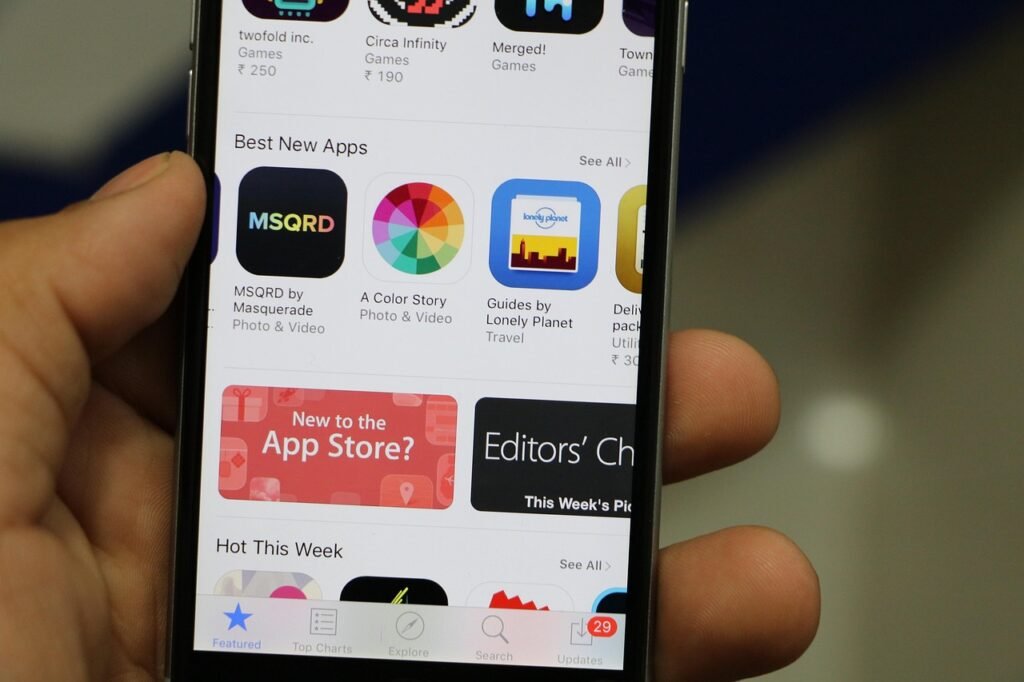Top Budgeting Apps to Help You Manage Your Money Like a Pro
Why BudgetingThe process of…
How to Help Your Kids Save Money for a Toy: A Fun Story About Budgeting
How To Help Kids Save Money: A Real Family Story How to help kids save…
Simple Tips for Saving Money on Groceries Right Now
Save Money on Groceries: Smart Strategies for Budget-Friendly Grocery Shopping Are you looking to save…
10 Simple Budgeting Tips to Save More Money Every Month
BudgetingThe process of creating…
Save Money: Easy Ways to Make Your Cash Stretch Further
Saving money might feel impossible when you’re broke, but small changes can make a big difference. Even if your budget is tight, there are simple things you can do every day to keep more cash in your pocket and start building a better financial future.
1. Know Where Your Money Is Going
If you don’t know where your money goes, it’s hard to save any. Start by writing down everything you spend for a week. This will help you see patterns, like overspending on takeout or streaming services.
Try the 50/30/20 rule to organize your budget:
- 50% for essentials (rent, bills, groceries).
- 30% for fun stuff (movies, eating out).
- 20% for savings or paying off debts.
There are free apps like Mint that make this super easy, even if you don’t like tracking things manually.
2. Cut Back on Everyday Costs
Saving money doesn’t mean giving up everything. Start with small cuts that add up over time:
- Groceries: Plan meals, make a shopping list, and stick to it. Buying generic brands instead of name brands can save you big.
- Utilities: Turn off lights when you’re not using them, unplug gadgets, and try shorter showers to cut your water bill.
- Subscriptions: Cancel subscriptions you don’t use, like streaming services or gym memberships.
- Transportation: Use public transport or carpool with friends to save on gas money.
Even a few dollars here and there can make a difference over time.
3. What to Do When You’re Broke
When money is really tight, it’s all about survival. Focus on the basics first:
- Cook at Home: Eating out is expensive. Learn a few simple, cheap recipes like pasta or rice and beans.
- Shop Secondhand: Check thrift stores for clothes and household items instead of buying new.
- Free Entertainment: Use your local library for free books, movies, and internet. Take advantage of free community events.
- Negotiate Bills: Call your phone or internet provider and ask for discounts. Sometimes, just asking can lower your bill.
4. Money Saving Tips for Easy Budgeting
Even if you’re not a fan of budgeting, these simple money-saving tips can help you get started:
- Save First, Not Last: As soon as you get paid, set aside even a small amount (like $5) for savings before you spend on anything else.
- Cash Only: Withdraw the cash you’ll need for the week and leave your debit card at home to avoid the temptation of overspending.
- Split Your Money: Use separate envelopes or accounts for different categories, like groceries, bills, and fun money, to stay organized and focused on your budget.
Once you get the hang of these basic money-saving tips, you’ll feel more in control of your finances.
5. Budgeting Strategies and Ways to Cut Costs When You’re Broke
If you’re struggling to save because you’re broke, don’t worry—there are simple budgeting strategies and ways to cut costs that anyone can try:
- Round-Up Savings Apps: Apps like Acorns automatically round up your purchases and save the spare change, helping you save without thinking about it.
- Sell Unused Items: Look around your home for things you don’t need, such as clothes, gadgets, or furniture. Sell them online or have a garage sale to earn some extra cash.
- Earn Extra Money: Consider quick side gigs like dog walking, babysitting, or food delivery to bring in additional income.
Saving doesn’t need to be all-or-nothing. Even small amounts of savings add up over time, and every dollar is a step toward financial stability.
6. Set Small Goals with Budgeting Strategies

Saving for big goals like thousands of dollars can feel overwhelming, but with the right budgeting strategies and small goals, it becomes much easier. Try these tips to keep things simple:
- $5 Challenge: Set aside every $5 bill you get, and watch it grow over time. This easy strategy can help you save quickly.
- No-Spend Days: Choose one or two days a week to not spend any money at all. This will help you cut unnecessary costs and boost savings.
- Track Your Wins: Use a jar or an app to monitor your savings. Tracking your progress keeps you motivated and shows you how far you’ve come.
Focusing on small, manageable goals and making gradual changes to your budgeting strategy helps keep your financial journey on track.
7. Plan for the Future
Once you’re out of survival mode, it’s time to think ahead:
- Build an Emergency Fund: Start by saving $500 for unexpected expenses like car repairs or medical bills.
- Set Up Auto-Savings: If your bank offers it, set up an automatic transfer of a small amount to savings every payday.
- Look for Better Deals: Whether it’s on insurance, phone plans, or rent, always compare options to get the best rate.
Taking small steps now can create a safety net and help you feel less stressed about money later.
More Resources
If you’re looking for more ways to save money or need extra support, visit CFPB.gov for free tools and advice. It’s packed with tips for people on a tight budget.
Saving money might seem hard when you’re broke, but small changes can lead to big results over time. Take it one step at a time, and remember—every little bit helps!




